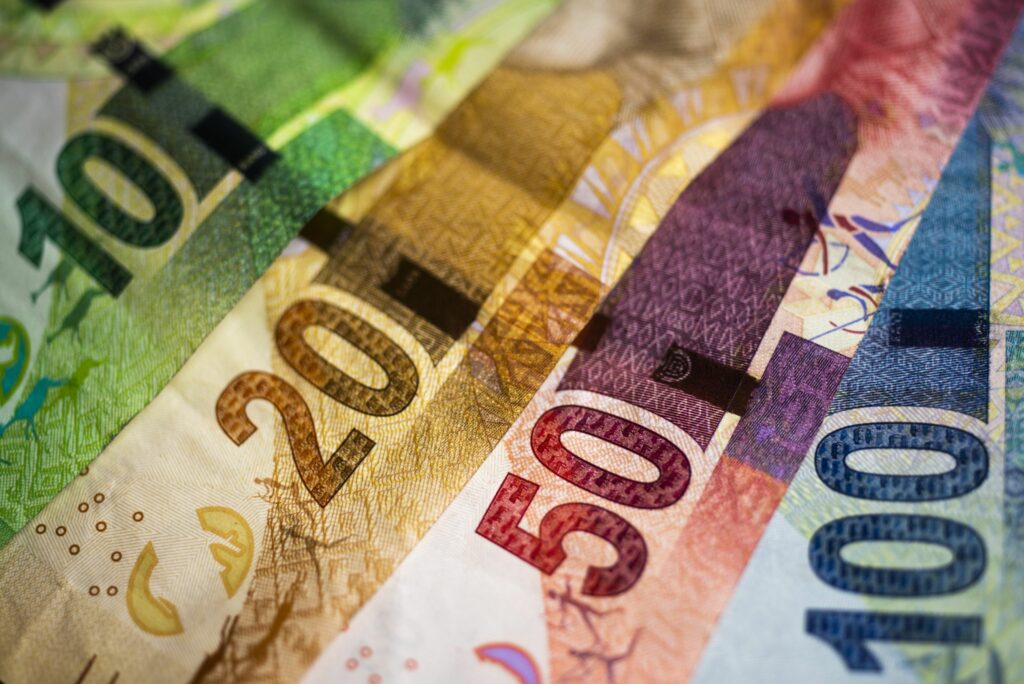February, when South Africa releases its annual budget, can be a terrible month for the rand, and many investors expect this year to be no different.
In February last year, rolling blackouts squeezed economic output, forcing Finance Minister Enoch Godongwana to announce a $14 billion budget relief package for Eskom, and the rand depreciated by 5.2% against the dollar. It had the worst performance in the month among emerging market currencies surveyed by Bloomberg.
advertisement
Continue reading below
In February 2020, the rand depreciated by 4% after ratings agency Moody's highlighted risks to South Africa's budget outlook. And in February 2019, it fell 5.9% after the finance minister announced the largest budget deficit in a decade. Overall, the data showed the rand endured an average decline of 2.9% in February over the past five years, while the emerging market currency index fell 1%.
However, the pattern of February weakness did not last long, with the rand ending February 2021 and 2022 flat, a year in which the Budget was praised by investors. All of this suggests that the currency's fate is closely tied to this year's budget, which will be announced on February 21st.
“The biggest factor behind the rand's weakness in February was the budget,” said Peter C. Earle, senior economist at the American Institute for Economic Research. “The deeper a nation's debt becomes and the more the government shows incompetence or lack of interest in managing the budget, the more the currency tends to suffer.”

The rand started 2024 on a weak note, depreciating by almost 1.5% against the dollar, compared to an average decline of 0.7% for the emerging market currency index. If future interest rate cuts in the U.S. encourage investors to return to developing countries, they could still gain ground. But the signs, at least for February, are not encouraging.
South Africa, for example, will hold national elections in late 2024, with the ruling African National Congress at risk of losing its majority for the first time since the end of white minority rule in 1994. As a result, spending pressure on politicians will increase. A gift to win by voting.
President Cyril Ramaphosa last month hinted at the introduction of a basic income subsidy, saying there was a “strong case” for introducing it despite fiscal constraints.
“The Ramaphosa government has not been able to restore confidence in the rand among institutional investors since the last election,” said Piotr Mathis, senior currency analyst at Intouch Capital Markets. He added that the government could resort to budgets that exacerbate fiscal problems and hurt the rand in order to stay in power.
advertisement
Continue reading below
Meanwhile, Godongwana has already announced an increase in borrowing using the medium-term budget statement in November. He is particularly committed to extending COVID-19-era monthly pay for low-income citizens through March 2025 and fully implementing previously announced raises for 1.3 million state employees.
The announcement unsettles investors whose holdings in South African government bonds are already at record lows following a spate of corruption scandals, crises at Eskom and state-run rail and port operator Transnet SOC, and the government's ever-growing demand for cash. I'm letting you do it. Fitch expects the consolidated fiscal deficit to widen to 4.8% of gross domestic product (GDP) this year and remain at 4.6% in 2025, significantly higher than official forecasts.
“Will the widening budget deficit come as a surprise to investors? No, really not. But perhaps some might be expecting the government to do more to rein in spending. “No,” said Carmen Altenkirch, an analyst at Aviva Investors Global Services.
Altenkirch said a moderate budget without too many fiscal compromises should support the rand, but he did not have high hopes.
“The challenge for South Africa is that it's not just the budget deficit. It's the funding requirements, including for Eskom. This issue is likely to get even more attention than just the headline deficit,” she added. .
© 2024 Bloomberg

